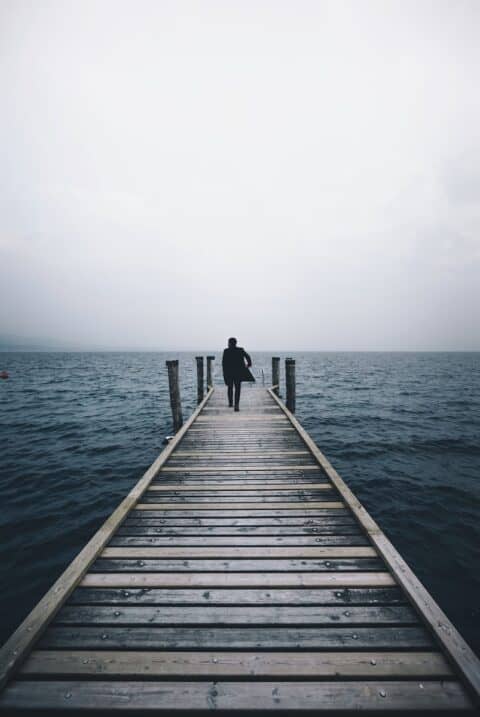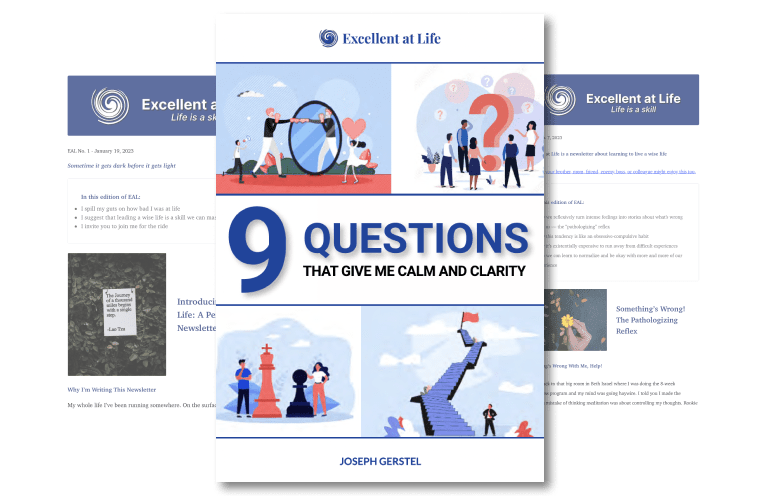I don’t sugar coat things. In part that’s my style, in part it’s a belief that looking life in the eye helps us live the best life we can. This edition is about taking death seriously. I personally vacillate between being empowered (and terrified!) by it and being demoralized by it. Please use your wise discretion as to the propriety of this particular contemplation at this moment.
The Wrongness of Death
Last month I buried my uncle. He died rather suddenly, in his mid-70s. I wasn’t particularly close to him but he was the first of my parents’ generation to die, and fortunately I haven’t experienced a lot of intimate death in my life. That only lasts for so long you know.
I never put someone in the ground before. There is something so stark, so chilling about it. Lowering the coffin into a cold hole in the ground (brrrrrrr… why don’t they put in heating?!). Shoveling dirt into a 6-foot grave with a person who you talked to two weeks ago lying on the bottom of it. Clunk, clunk, the dirt hitting the coffin. We filled the grave shovelful by shovelful, taking turns to the chanting of ritual prayers by the onlookers.
I hate death. There is something so wrong about it. It’s so unfair that we get no say in how and when it happens — when some car turns right to quickly or when your systems fail even if just from old age.
The ground is no place for a (once) sentient being. It is an insult to our existence, our sacredness. Permission should be required before we yield ourselves to whatever is or isn’t out there. We should have some choice in the matter.
It is wrong that we don’t, God’s original sin if you will — creation, with no license, death, with no consent. There is nothing right about the killing of a wildebeest calf by a lion on the Serengeti and there is nothing right about the death of a child to freak accident, of a father to illness, of a grandmother to old age.
The entirety of our lives is largely a reaction to this primordial wound, an attempt to impose certainty on unstoppable change, to impose stasis on the fleeting.
Our Attempts to Hide
Protest as much as we want, death rides on our shoulder, a specter haunting us, animating our little worries and concerns. All your fears of something happening, of getting injured, sick, losing your livelihood, or the many other possible horrors of life —they’re all animated by our underlying fear of death, our desire for some control over when this ship will sink.
But rather than naming it and crying our protest, we hide.
We deny that we may die at any moment, and that we will die at some moment. We attempt to build castles in the sand, legacies, empires, something, anything, that will last. Something that will say I’m important, I’m here, forever. Know me. Remember me.
Life is temporary. We can pretend — and we all very much do — that death will spare us, but the realization that it is there waiting for us cannot be held at bay forever.
I’m still relatively young, but I see my parents aging. I see my uncles and aunts aging, my cousins with established families starting to look middle-aged. I’m not that far from the statistical average point of my life (and no, whoever’s out there, it’s not a cool move to kill me after writing this so that people can comment on the irony of me writing it a day before I got killed).
So why talk about something so morbid? Why not live in denial for a few more decades at least?
Death as an Invitation to Remember
Death is an invitation, an invitation to remember. To remember that our most valuable currency is life — not money, not possessions, not status. The price of anything is the amount of life we have to exchange for it said Henry David Thoreau. The more clearly we remember this life is not permanent, the more regard we’ll have for this precious currency.
There is a certain clarity of purpose that death evokes in the living. The more closely we experience the precariousness of life, the more in touch we get with what really matters. After close shaves with death (“mortality salience”) people make big changes to their lives.
But why should we wait for the ground to shake, for some accident of the outside world to put it’s hand in our fishbowl and stir the sand? We can shake ourselves awake and taking death seriously is the tonic that will help us do so.
We don’t take life seriously because we’re continuously living for some future where things will be just right. Things will never even just be, forget about being just right. The nature of life is that everything is continually changing. There will never be a point of stasis, an anchor for us to hold onto. We’re always at sea, and most of the time the sea is storming.
We’re a process, not a thing.
When you realize this ship can sink at any time, that its demise is inevitable, you stand a chance of sailing into the harbor of surrender. You stand a chance of surrendering your attempts not to die and remembering to live.
To live this one beautiful life of yours and let your lovely self flower.
You are beautiful.
Joseph



